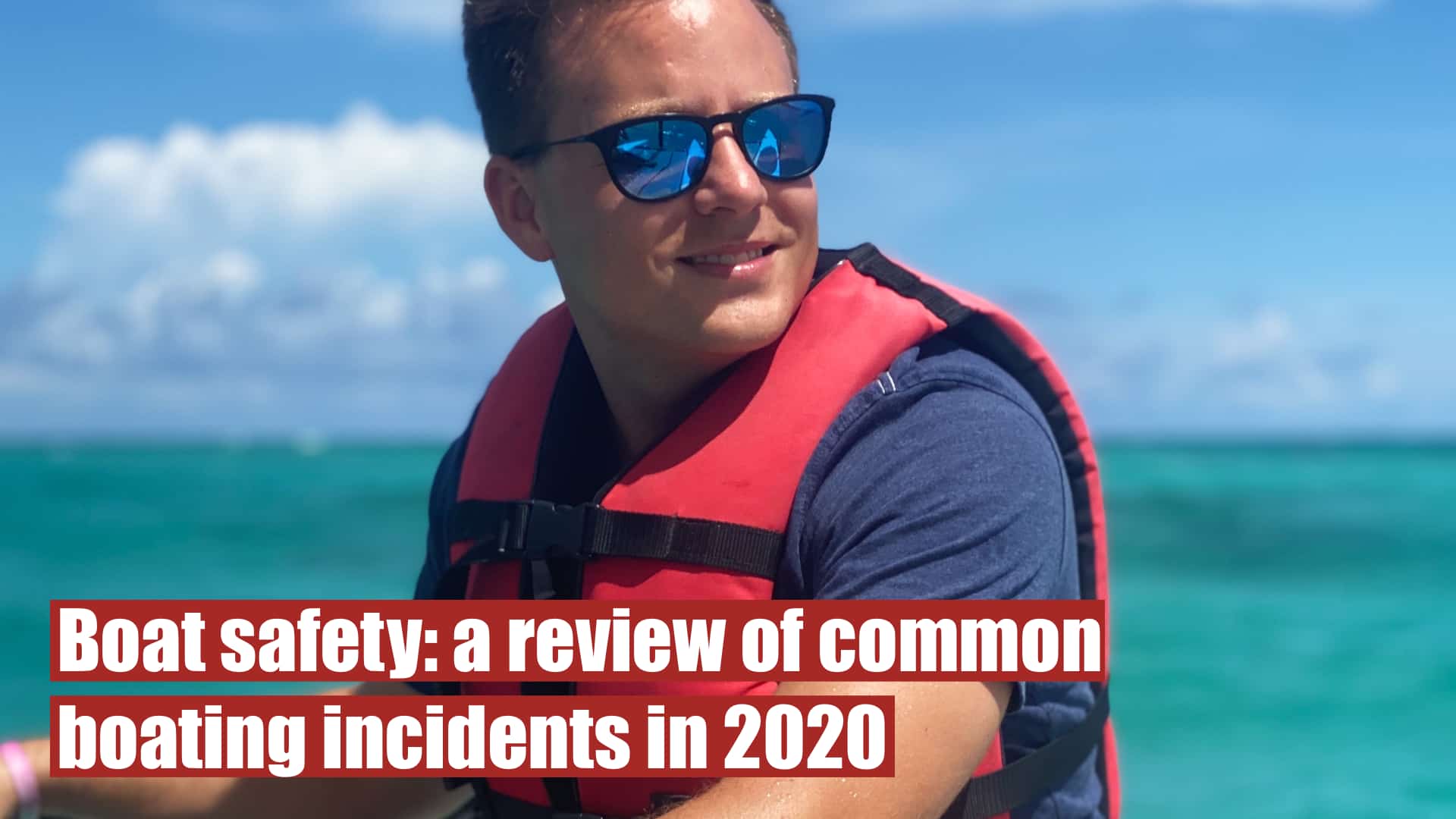Every year, Maritime Safety Queensland publishes a report on marine incidents statistics and their causes. Their most recent report, Marine Incidents in Queensland 2020, has some arresting insights into the number, type and cause of incidents in 2020 that everyone should consider when boarding a boat.
Last year, the global COVID-19 pandemic caused Queenslanders to be disrupted by lockdowns, social distancing, and travel restrictions. As restrictions eased and we began to adjust to a lifestyle that kept us necessarily closer to home, many people turned to personal recreational vehicles for entertainment and pleasure. Certainly here at Coorparoo Marine we noticed increased demand for new boats for sale, and all across Australia demand has reportedly risen for campervans, personal watercraft, and local travel. More locals are staying local, and the demand for boats surged. And, why not? The adventures that abound in our local waterways can be equally peaceful or thrilling, depending on your preference.
As noted by our colleague, John Crawford, while we in the industry are delighted by the prospect of more families benefiting from the adventure and closeness to nature that boating brings, there is a serious side to boating. This report by Maritime Safety Queensland has shown that over the past year, while, on the whole, the community is practicing safe behaviours, unfortunately the consequences of boating incidents can be very severe, particularly when personal safety is neglected.
The report begins acknowledging there has been an unusually high increase in recreational vessels registered, and that it is reasonable to assume an increase in incidents. Here is some of the stand-out data from the report:
Substantial increase in registered vessels in Queensland:
339 reported incidents in 2020:
Most vessels were reported to have been operating in ideal weather conditions:
As in previous years, from a total of 339 incidents, the most reported incident type was:
33 POIs is more than twice the average number that have been reported over the last 10 years.
Sadly, there were 16 fatal incidents resulting in 17 fatalities.
Overall, keeping the number of incidents below the 10-year average is a notable achievement. This can be interpreted as it being less likely to have an incident on the water, and people generally acting in a safe and responsible manner. Unfortunately, the significantly high number of fatalities reminds us of the severity and permanence caused by any mistake.
Taking precautions and being prepared is key. You should always tell someone where you are going and when you’re due back, talk to locals and experts, and have all safety equipment serviced and easily accessible to reduce the severity of any accidents that might occur.
Both captains and passengers must act responsibly. As the captain, it is not just your own safety you are responsible for but also the passengers. As a passenger, we must also own our responsibility by asking where the safety equipment is, and to speak up should we ever feel unsafe or uncertain.
Incidents happen even in ideal conditions, and in fact the report shows they happen predominantly in ideal conditions. If you’ve ever had to navigate through bad weather, for example when the strong winds hit you at an angle and the sea has become choppy, our senses heighten and our focus narrows until we’re able to navigate to safety. It can be easy to be lulled into a relaxed attitude on a clear, calm day, however, a keen awareness of the conditions and surroundings should be never far away.
Collisions between ships, collisions with objects, groundings, capsizes and persons overboard incidents account for 65% of the incidents in 2020. Two of every three incidents fall into one of these 5 categories. To avoid incidents that can harm you, your passengers and your boat, you should be studying maps of the local waterways, observing your surroundings at all times, and continuing to learn and seek advice to hone your nautical skills. When in doubt, slow down and proceed cautiously.
Avoiding persons overboard is, no doubt, everyone’s number one priority. There can also be no doubt that persons overboard incidents are one of the most severe threats to our safety. We must all remain vigilant of the prevailing weather conditions of the day, and ask or be shown where the lifejackets and other safety equipment is stored, and know what to do in case of an emergency.
The Marine Incidents in Queensland 2020 concludes by stating that, “Over the last 20 years, 123 of the 182 people who lost their lives in a marine incident drowned or are presumed to have drowned and only seven of those people are known with certainty to have been wearing a lifejacket”. The message then is clear, lifejackets save lives. Keep them close to hand and ensure everyone knows where they are.
Owning a boat is a magical experience. Few other recreational activities take you closer to nature and away from the noise and chaos of suburban or city life. Adventures just hours from Brisbane can take you to catch your own dinner in Moreton Bay, spot dolphins and whales off North Stradbroke Island, cruise the Broadwater on the Gold Coast or explore a stretch of beach off Fraser Island with not a soul in sight. It’s also an extremely popular pastime in Queensland, and we are fortunate to have ample resources to educate ourselves and improve our nautical skills.
If you haven’t already, check out these resources that should cover everything you need, from equipment, navigation, maps, etiquette, and much more.
*The data in this article was sourced from the Marine Incidents in Queensland 2020. We have taken care to report this data accurately, however, you are encouraged to read this report in its entirety.
Want more articles like this? Check out our blog for more articles about boating near Brisbane, and much more.
